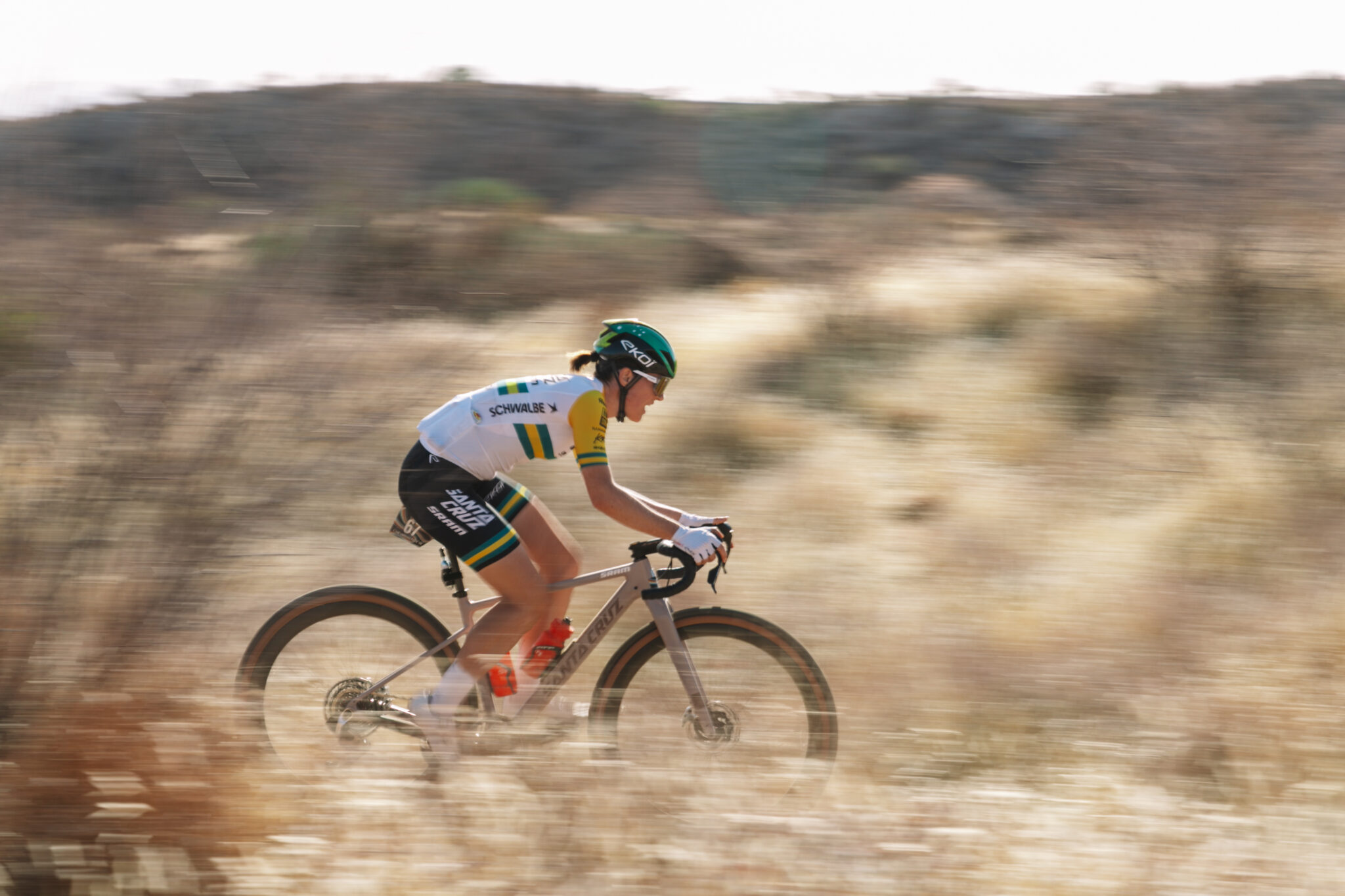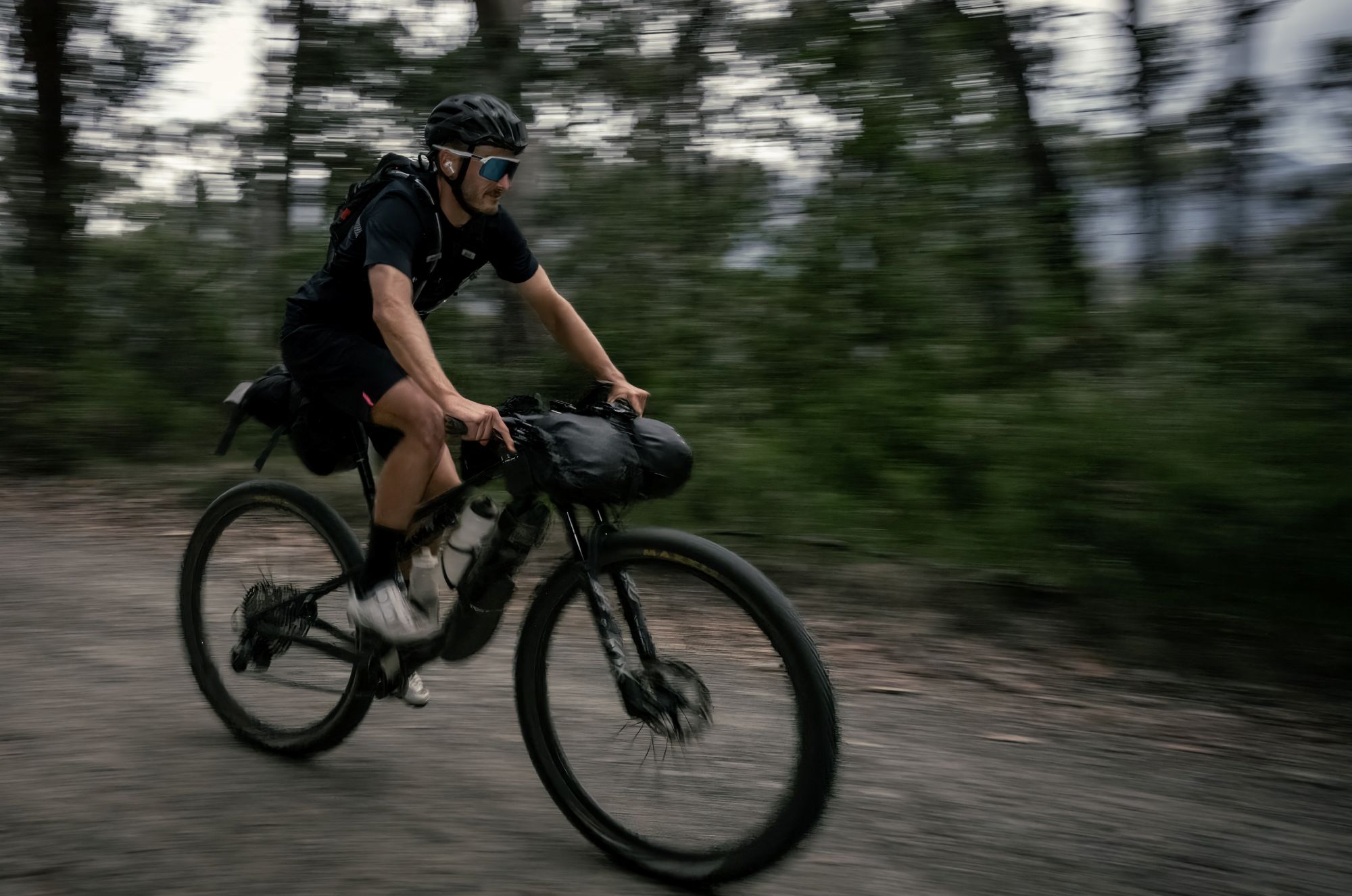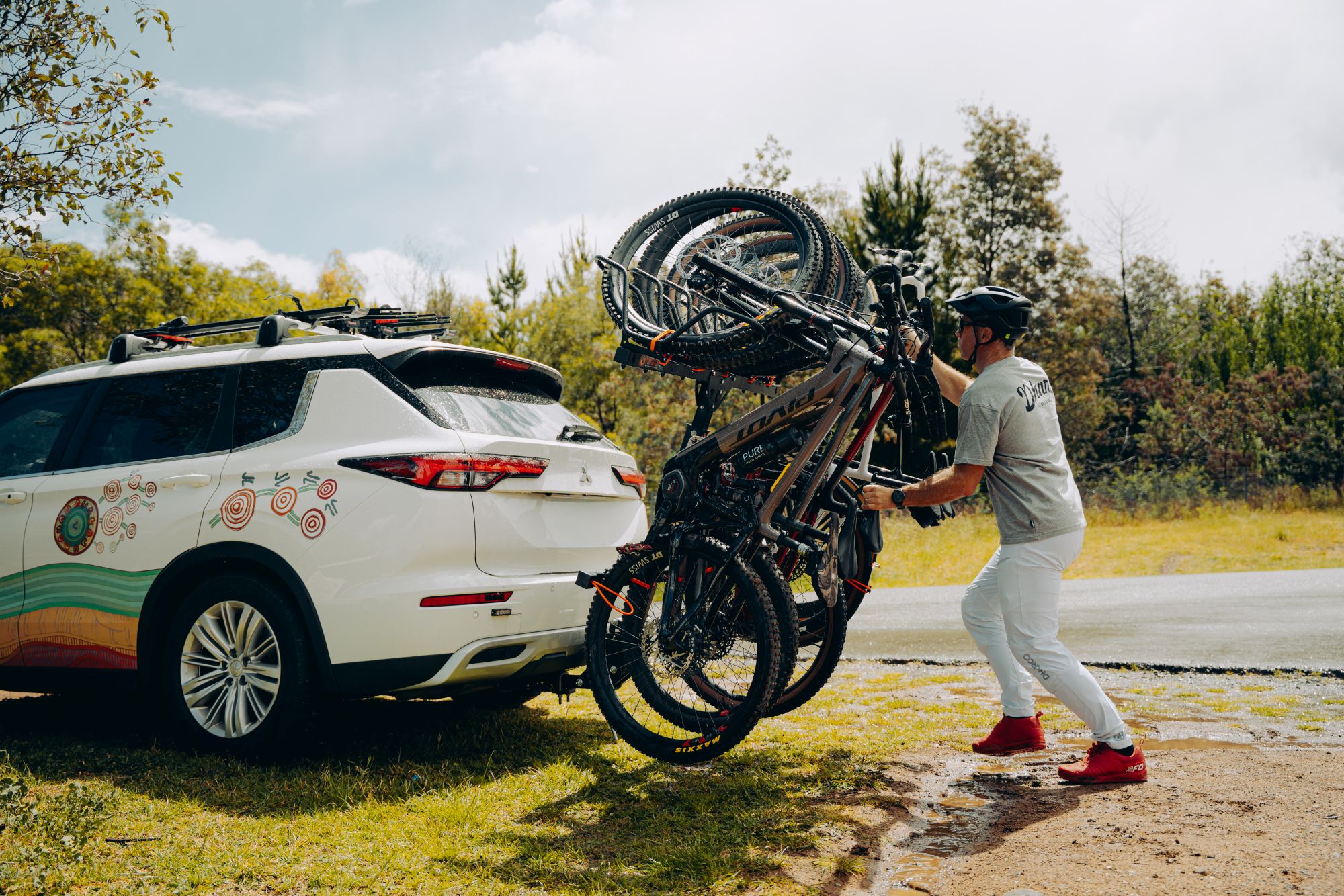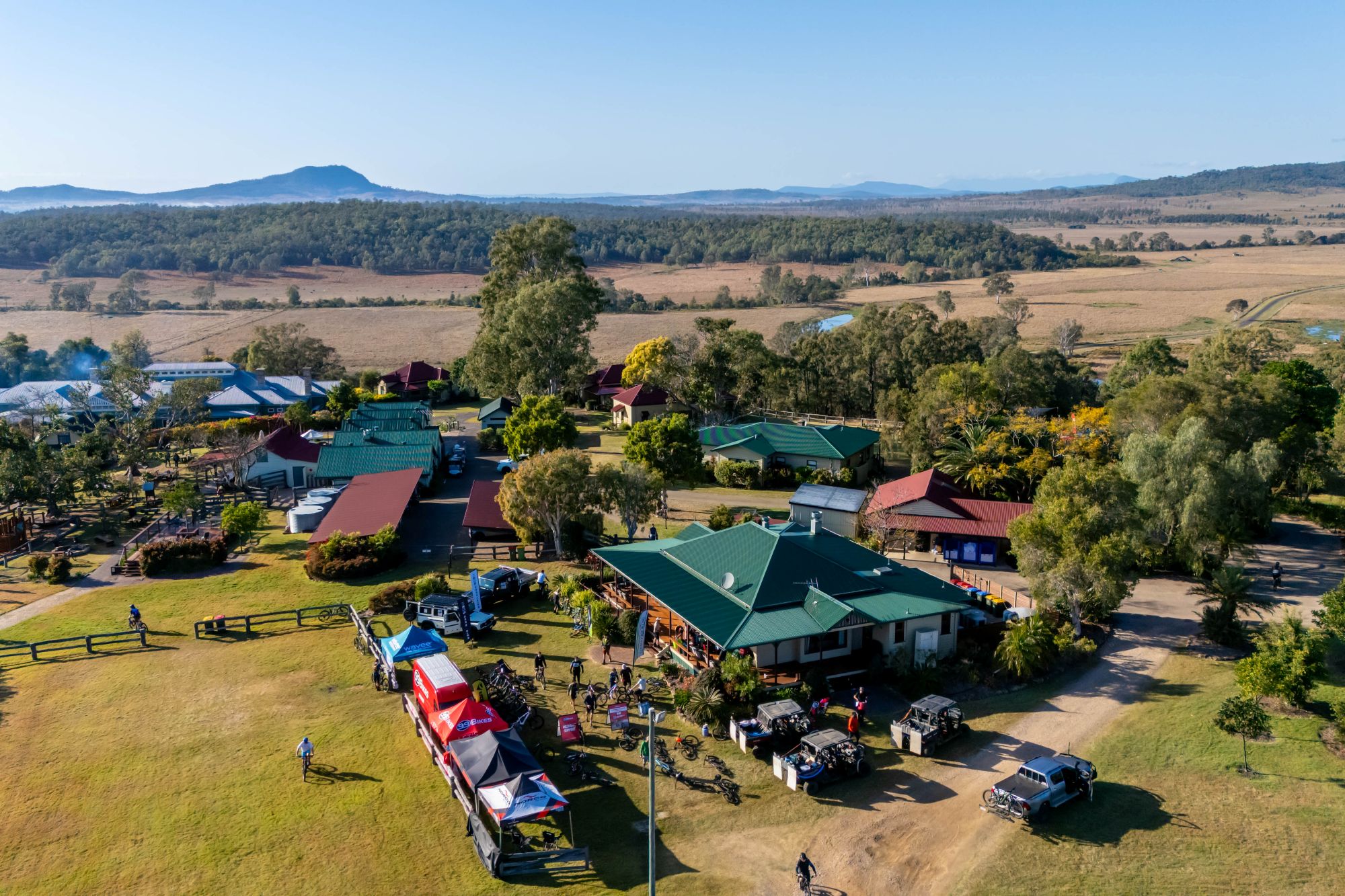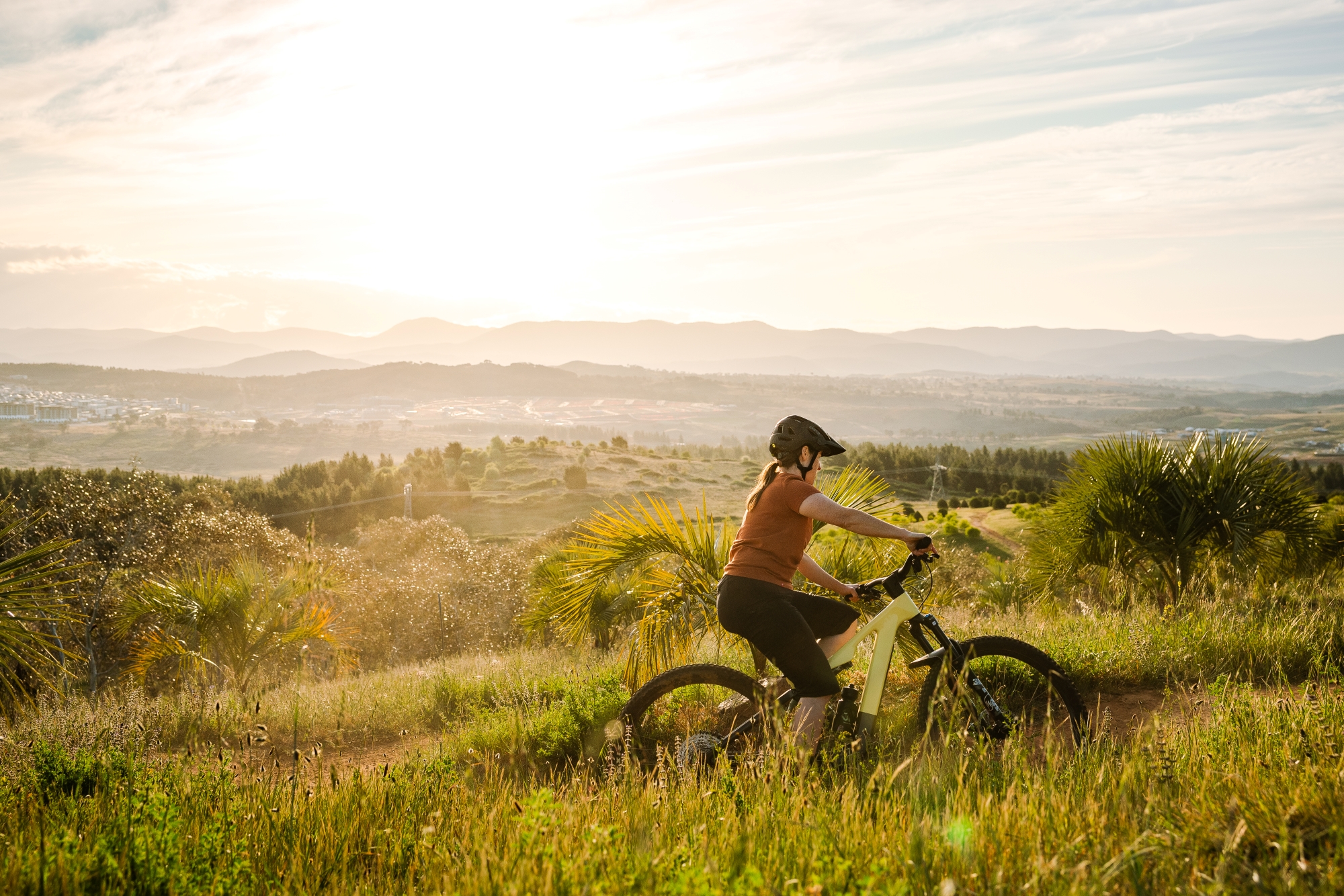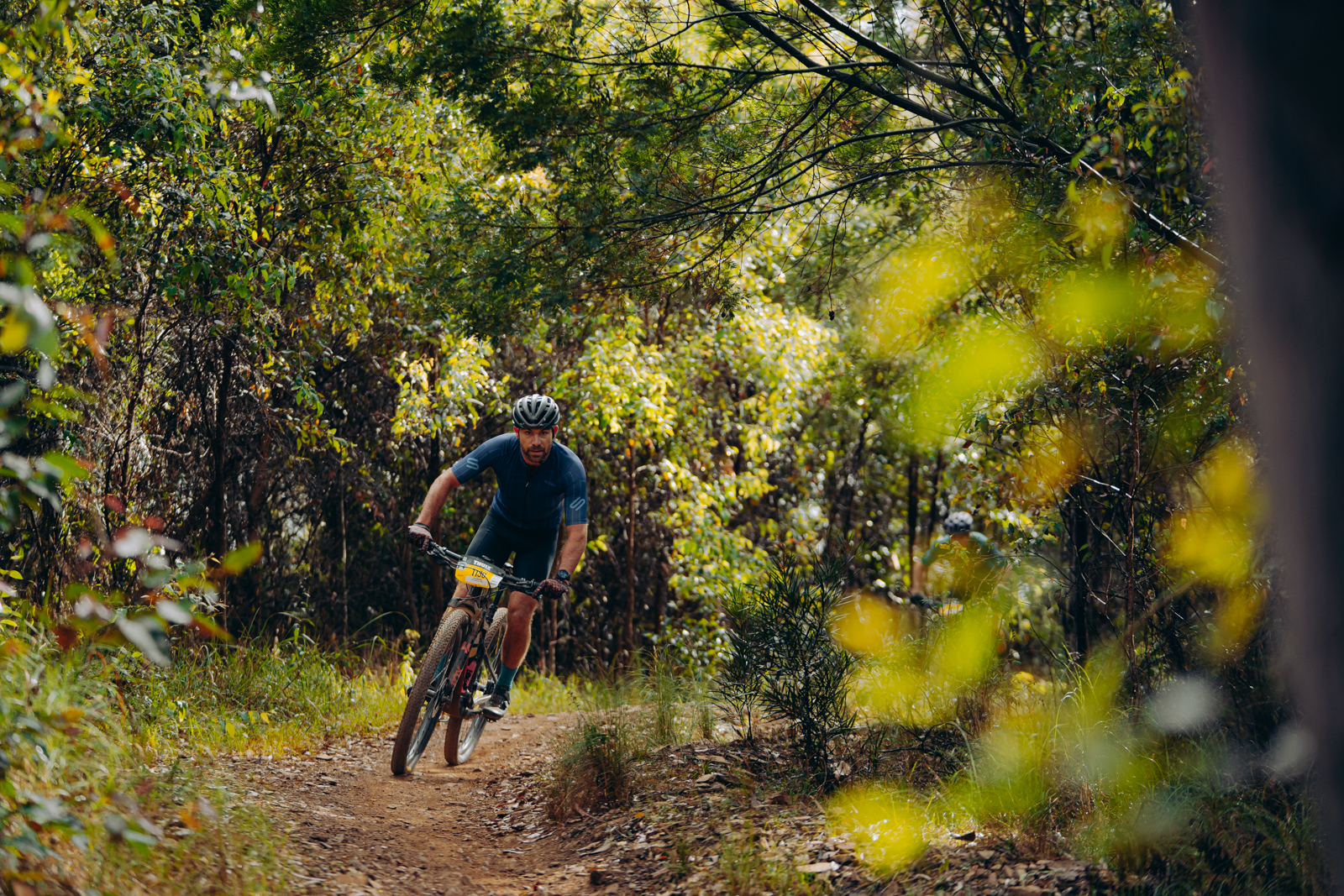Courtney Sherwell’s all-in journey through the Life Time Grand Prix
ADHD, broken noses and camp-stove dinners – here’s how Aussie privateer Courtney Sherwell is grinding her way through the Life Time Grand Prix
Courtney Sherwell is no stranger to hard work. A two-time Australian national champion who’s carved out her niche in ultra-endurance gravel and mountain bike racing, Courtney’s journey is one of determination, adaptability, and a love for finding her personal limit.
In her second full season racing the Life Time Grand Prix in the U.S, the Victorian-based privateer has been living out of a car, cooking meals on a camp stove in hotel rooms, and juggling training with long-haul drives between race destinations – all without the backing of a major team.
In this candid chat, Courtney opens up about the logistical hurdles of chasing a dream overseas, the reality of racing without the support many of her competitors enjoy, and her evolving identity as a “pro” rider. We talk about her diagnosis of ADHD and how cycling helps her manage it, reflect on her unconventional entry into racing (spoiler: it involves a broken nose and a Scott hardtail with tassels), and look ahead to what’s possible if things go her way in the second half of the season.
We caught up with Sherwell in between key events – having just recovered from the 200 mile long Unbound Gravel that didn’t quite go to plan, Sherwell had left the Flint Hills of Kansas for the mountains of Montana ahead of the Belgian Waffle Ride in Bozeman, Montana.
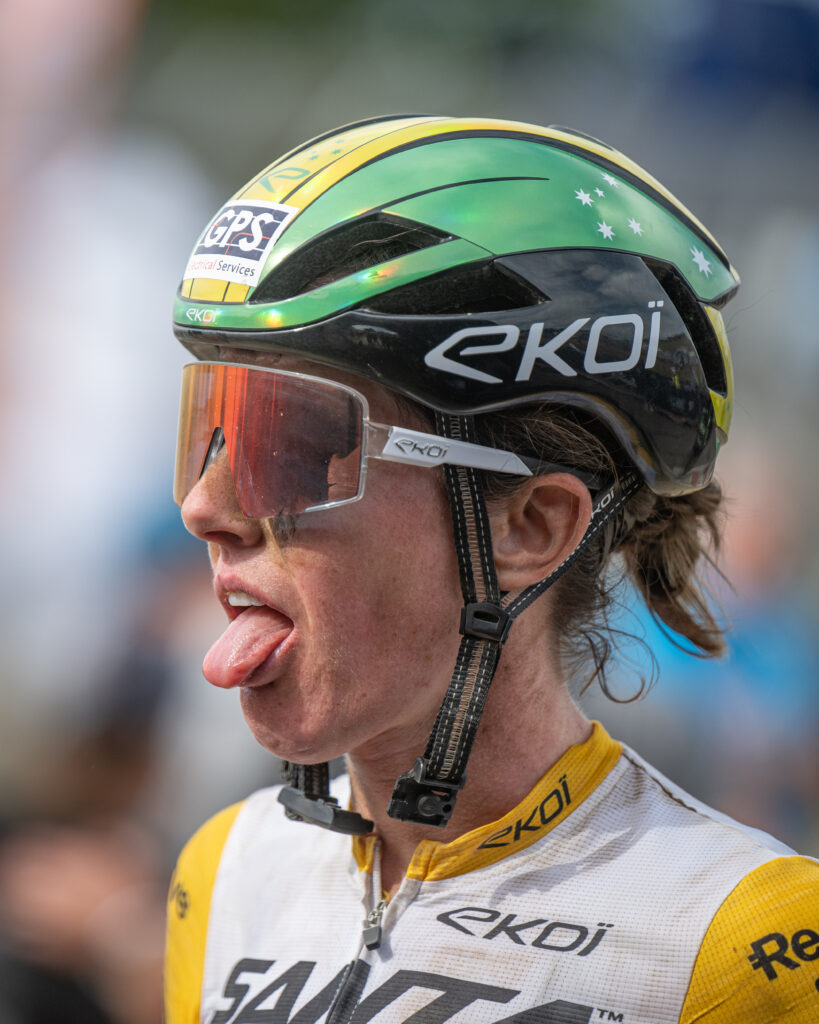
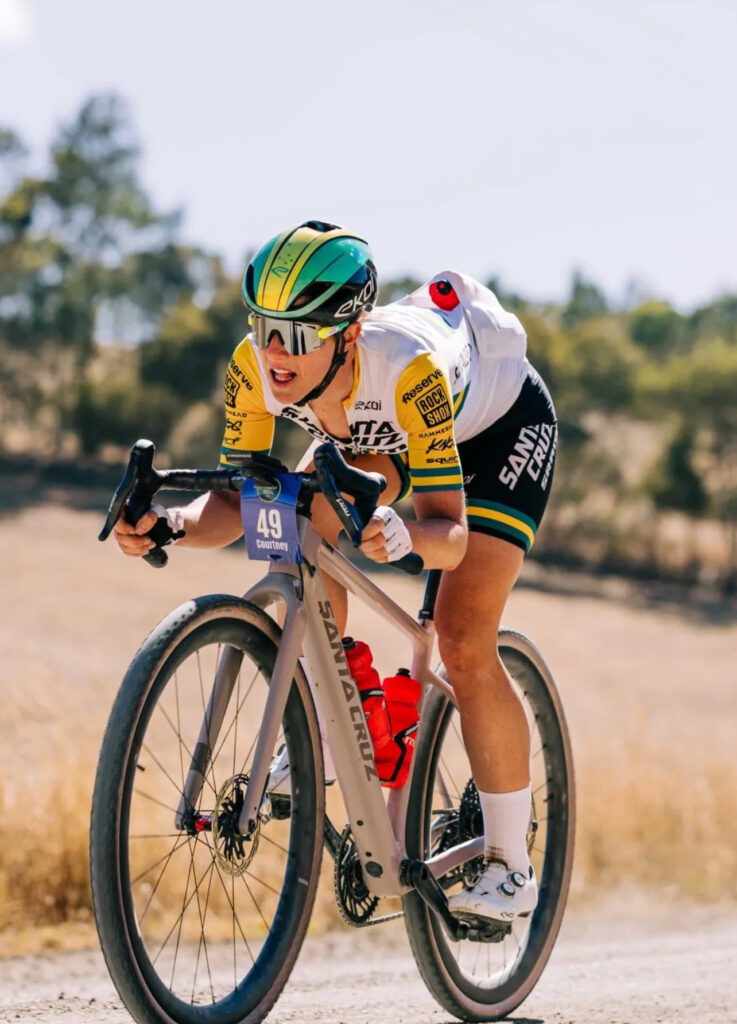
Currently positioned 11th overall for the Grand Prix, she was sitting in 7th until she came undone at Unbound – a pre-race crash and autoimmune flare up put Sherwell on the back foot, and resulted in a long, hard day on the bike. Despite this, Sherwell knows she is capable of big things and the long season is nowhere near done and dusted with Leadville 100, Chequamegon MTB Festival, Little Sugar MTB and Big Sugar Gravel races still up for the taking.
“There’s no reason why I can’t win a Life Time Grand Prix race, but I’ve got to allow myself to think that I can,” Sherwell says. “At the moment I’m thinking that top five would be great, but ultimately a win. Coming from a mountain bike background as well, it’s gotta be a benefit with those few races”. In particular, Chequamegon MTB Festival and Little Sugar MTB are likely to suit the 2024 Cross Country Marathon National Champion.
And deliver she did, the weekend after the interview Sherwell again proved her strength, riding to second place in the Belgian Waffle Ride, Montana.
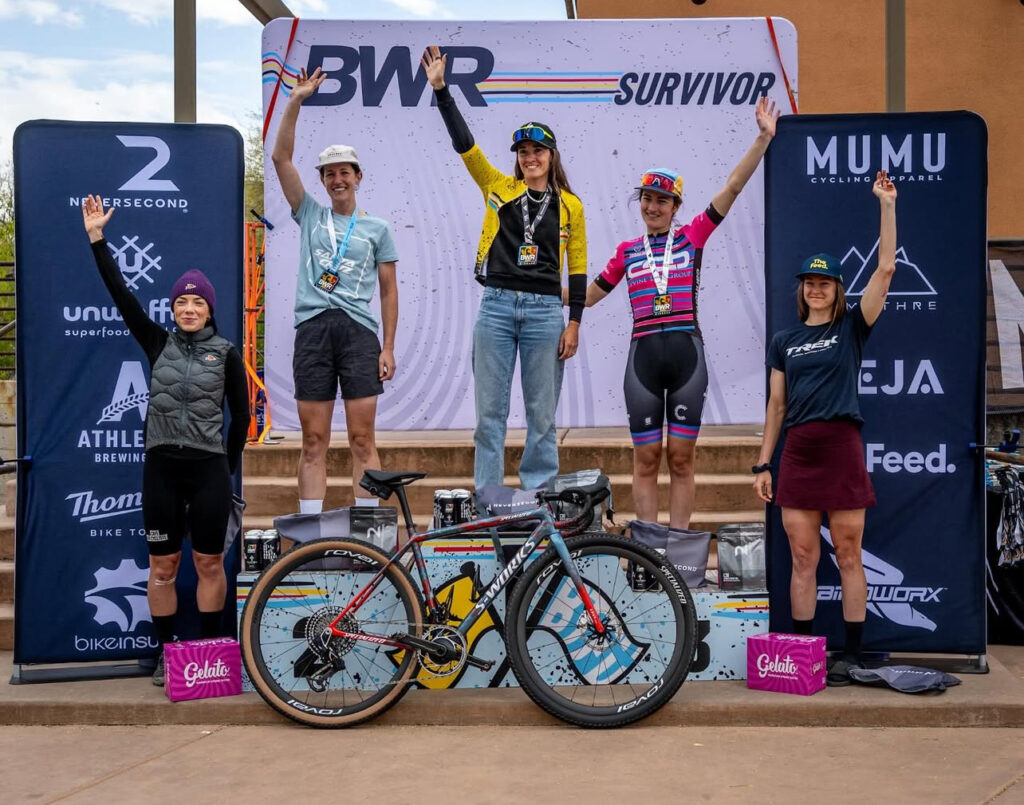
Despite the stunning scenes of Yellowstone Park, technical terrain of Utah and of course Kansas gracing her social media, Sherwell can’t understate the difficulty of an Australian shuffling around the U.S. on a bike racing pilgrimage.
“Logistically, coming from Australia over here has been the hardest thing. I’m a creature of comfort. I like to have a home base and to be able to have somewhere where I’m comfortable and I can leave everything. So for me, that’s been quite difficult living out of a car, essentially. It’s been really hard to have to pack up everything that you own right now into a car and then drive for 10 hour stints per day to get to the next race.”
“We have met people over here last year and we’ve got friends that have houses in Arizona in St. George, which has been amazing, but that’s not where the racing is. So there’s a lot of travel, and it’s hard to train and travel at the same time.”
While the Life Time Grand Prix is inarguably the biggest offroad cycling series in the U.S., and Sherwell has earned her place in the series, she remains a privateer racer, with predominantly Australian sponsors.
“My sponsors are Australian based sponsors. I can get a few connections in the US, which has been great, but I feel like the support really isn’t the same for me versus the athletes that are from the US, or are sponsored by an international brand.”
“It’s also been a bit tricky trying to pre-plan everything that I need so I don’t have to try and ask for it at a later stage. So logistics is again the hardest thing. Teams offer accommodation and travel help. But you know, everything is self-funded [for Sherwell] and that gets quite hard when the races aren’t going to plan and you’re not getting the results that you hope for. You kind of think that you’re just throwing money down the drain just for a bad day, which can be really hard.”
Sherwell does offer a consolation, “On the flip side, is when you have a good result and you think ‘wow, I’m a battler. I’m living out of a car, essentially I’m cooking in a hotel on a camp stove’ – don’t let the hotels know that I’m doing that. When you’re doing all those things and things work out, then it’s just an amazing feeling and something that I wouldn’t trade ever.”
For Sherwell, it’s an in house affair with her partner, John, also taking on double duty as coach, mechanic, bank account and emotional support, “he’s doing everything! But it would be really nice to have the contacts and more support over here.”
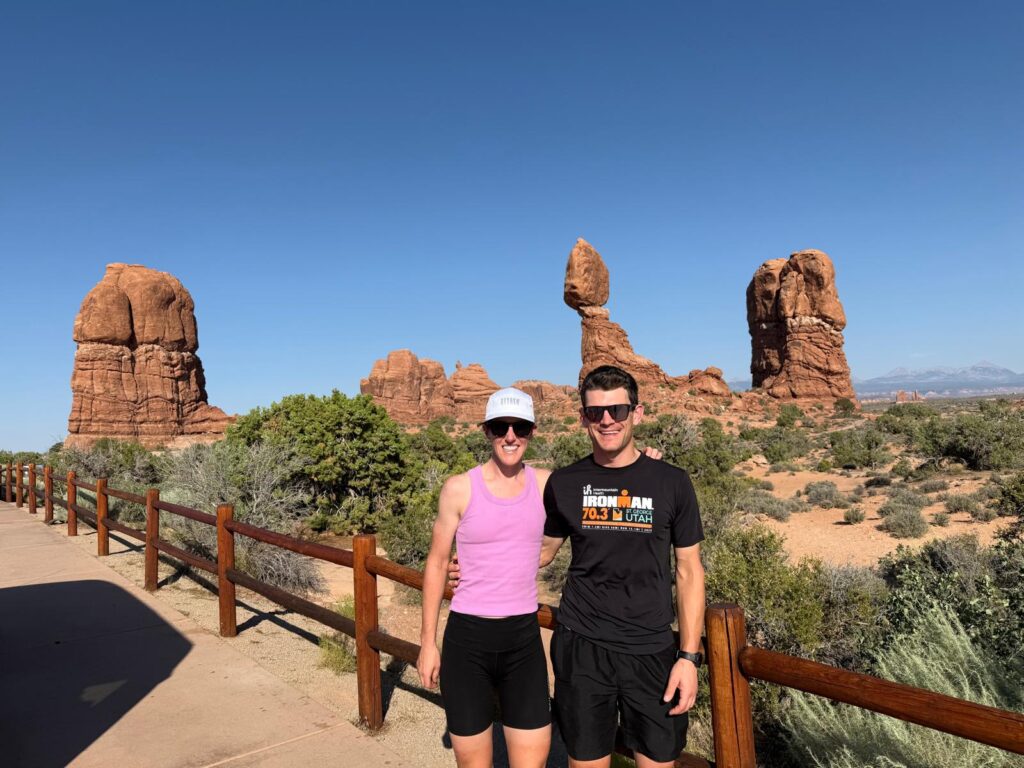
Despite the challenges, Sherwell is steaming ahead with plans for the 2026 season, “I’m trying not to think too far ahead, but in the back of my mind, I’m hoping that I can have a really good second half of this Grand Prix. The more support I could get over here would help to prepare for next year. The ultimate goal for maybe 2026 is to pick up some US based sponsors.”
Racing at the highest level in the US required Sherwell to take stock and rethink her identity as a bike racer. In Australia, ‘pro’ mountain bikers and gravel cyclists are few and far between, but in the US all her competitors are professional athletes.
“The funny thing is everyone here will go, ‘are you a pro?’ And I have never thought of myself as a professional, essentially I don’t get paid. So I’ve had to try and change that mindset and just say yes, because I’m in the Grand Prix. I’ve been a dual national champion. I’m racing in this series, which is, you know, one of the hardest series in America, if not the world.”
But Sherwell, always circumspect, acknowledges the other side of the coin and the potential difficulties of a team environment, “being on a team, everything is organized for you: equipment, races, travel, all that sort of stuff. But then the cons can be the dynamics within the management of the team, and whether or not that’s the sort of environment that you wanna be in. Does that environment breed success or is it just for, um, social media?”
“Especially in Australia, so many people are just focused on getting on a team. All they care about is being on a team. I’ve got friends that are in this position and I’m just like, ‘what is the one thing that you think you’re gonna benefit from? Do you think that you’re going to race better? Are you going to have more fun? What is it that you want out of this team environment?’ And they can’t really fully answer it. The one thing they say is, ‘product, a bike, blah, blah, blah.’ And I’m like, well…go chase it. To me that’s not an answer.”
And chase it she did, with Sherwell establishing relationships with a range of Australian sponsors “Santa Cruz was the first one that jumped on board last year, and it’s just been 12 months since that’s rolled over. So that’s been really cool. Being able to establish my own relationships and to keep that going has been really, really important.”
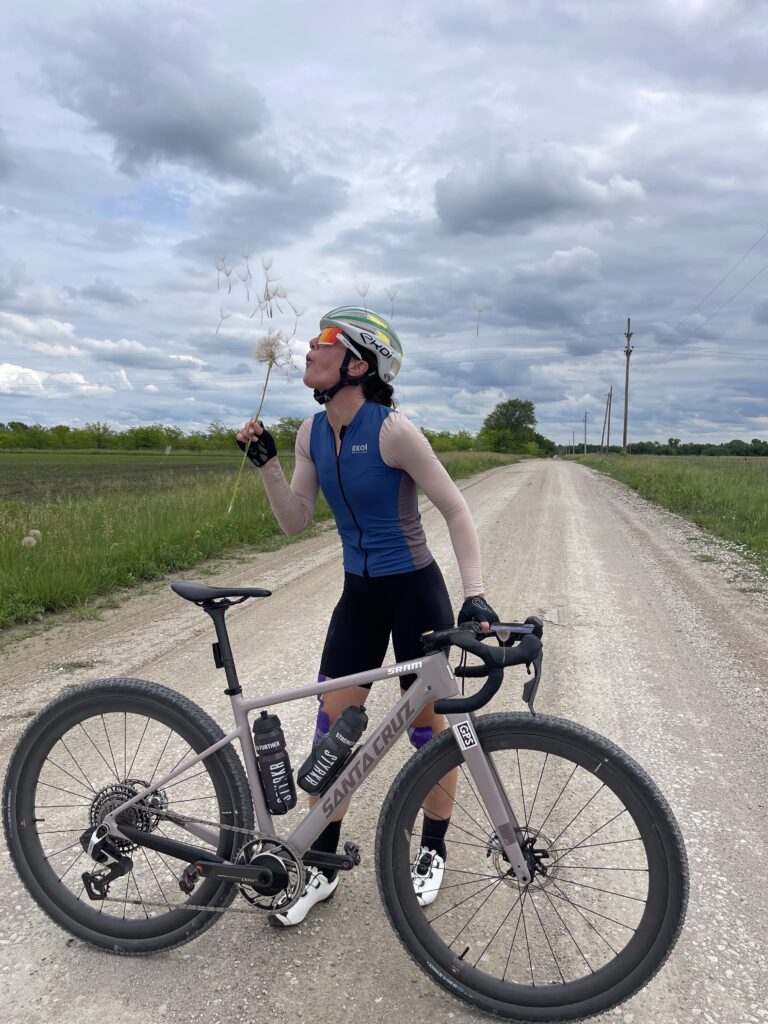
But racing the Life Time Grand Prix and chasing a Pro contract in the US was a long time in the making. Sherwell is in her second year racing in the US, and started in the sport in a much more humble way.
Her first foray into cycling was, like many of us, just hanging around, “I rode bikes when I was a kid with my brother, went to the pine plantations and I thought I could do jumps, but I wasn’t really doing jumps – I was just hanging out with my brother and trying to do what he was doing.”
“I grew up in Ararat in Victoria, they have quite a large road cycling community there, but it was never something that I saw as an avenue. It was more like netball or basketball, tennis, all those sorts of things, I just dabbled in a little bit of everything.”
“I finished high school, moved in with my partner John and his dad and just played netball for years, played B grade and A grade, and I was a premiership captain in the Macedon Rangers football league.”
Sherwell soon found the politics of team netball oppressive, “I grew out of that environment of netball and the politics around that. John got me a bike for my birthday. My very first one was a GT something, it was just a cheap, entry level mountain bike but I loved it.”
“It was my birthday a couple of years later and we were going riding somewhere and we packed everything into the van. I was fluffing around doing something else. And he’s like, ‘oh, go get on your bike’ because I think I got new clip-in shoes for the first time that day. I went around to find my bike and I couldn’t see it, but there was this other bike there that had green tassels on it – a Scott Scale, 29” hardtail.”
Sherwell fondly remembers the attire of her budding cycling wardrobe, “I was wearing a high-vis jersey and short bib with Skins tights over the top – I was a complete, complete noob. When I look at that now, I just think it’s cool. That’s where everyone starts and that’s what everyone looks like and shouldn’t be embarrassed by that.”
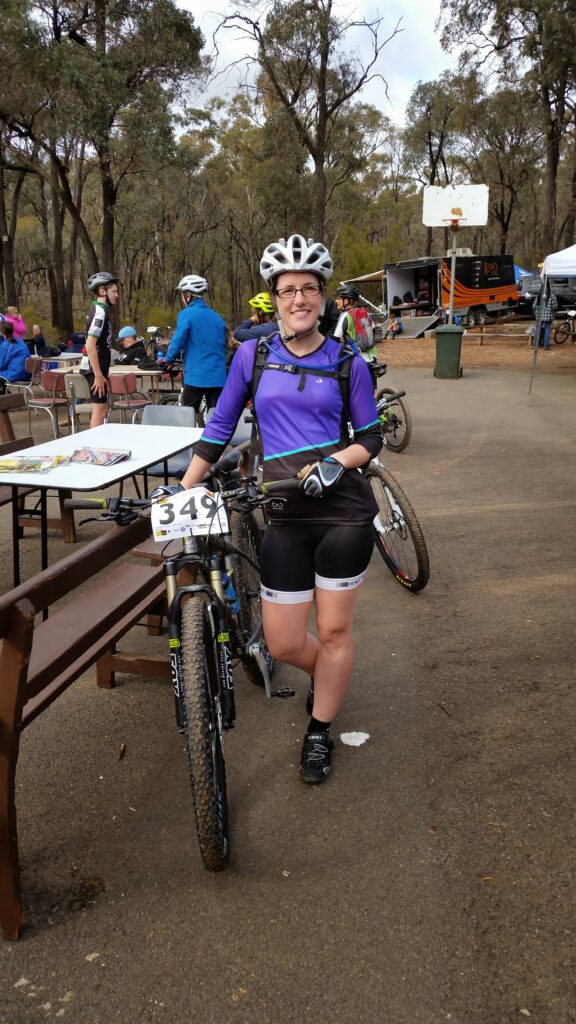
From hi-viz lycra, extra tights and special tassels on the new Scott Scale hardtail, Sherwell was ready to rip into her first race. The event? A mere 50km marathon!
“John was racing it and I was just supporting and I thought it looked pretty fun and I saw other ladies doing it and I thought, well, I’d like to go. But it took a lot of confidence to get to that point.”
Things did not go smoothly.
“It was horrendous. I crashed. It started on an oval and it was a mass start. And I just remember saying to John, I’m so scared. What if I get in everyone’s way? What am I gonna do? And he is like, ‘don’t worry, you’ll be fine’.”
“Anyway, it was scary and there was an A and B line that wasn’t marked correctly. And I’ve come up to this A line and realised it was a big drop and an ‘oh shit’ moment. I’ve gone over the bars and landed flat on my chest and broke my nose. John had to pick me up and make sure I was okay, and you know, ‘you’ll be right, keep going’.”
Soon after she clipped the handlebars and crashed again. “John picked me up, put me on my bike and pushed me and said, ‘you just gotta keep going’. He could see that I was about to cry. Anyway, I finished and the organisers felt really bad, they realised that it wasn’t properly marked and they gave me a 12-week training plan.”
With a broken and battered body, it would be easy to throw in the towel., but instead Sherwell embraced her 12-week program and signed up for the Otway Odyssey 50k, her second race.
“You know, they say with childbirth you kind of forget the pain, so that’s why you go back and have other children, like with crashing, you kind of forget what it was like.”
In the years since then, cycling has not just been an enjoyable pastime but something Sherwell uses to help manage her ADHD. Diagnosed around 2 years ago, Sherwell states that she had found that movement on the bike allowed her to be the best version of herself.
“When I’m on the bike and when I’m racing, no matter how hard it is, I’m the most positive version of myself. I can talk myself through hard moments and just keep pushing and digging, and find that positive space within my brain to keep going.”
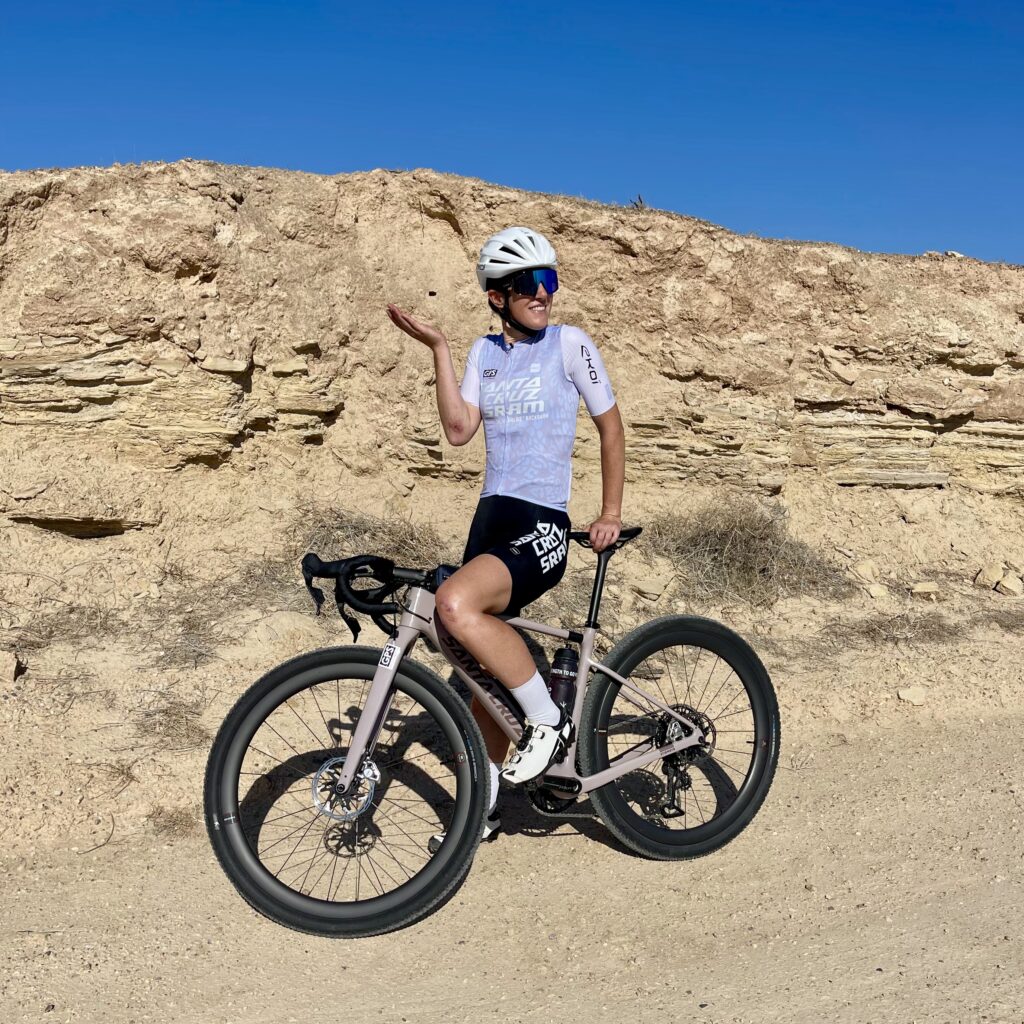
“When I’m not on the bike? That can be the complete opposite story. And when there are a hundred different things happening that can be quite overwhelming and I lose focus very quickly. When I’m on the bike, I’ve got one task, I know what I’m doing, I plan for it.”
When she got diagnosed Sherwell was suffering from “fatigue and mental fog and memory issues. It just got progressively worse, and I was finding the more I was training and exerting myself, my ADHD symptoms worsened with fatigue.”
“My partner has ADHD as well. So he said he was looking at me and he was looking at the inattentive type, and he is like, ‘tick, tick, tick, tick, tick’. But to try and convince me to take that step to get tested was probably the biggest one. Eventually I did it and it came back ‘yes, you’re inattentive’.”
“It was a little bit of a relief, but it was also like what do I do now? What does that mean going forward? I am medicated for it, and that’s something I don’t like to talk about a lot because being an athlete and being medicated for ADHD is quite controversial. I have taken steps to make sure that if I have to be drug tested and that sort of thing, that all the boxes have been ticked, but that’s something that sits on my shoulder every day and I’m so stressed about.”
“I don’t feel like it makes me better, performance wise. I feel like it puts me more on a level playing field where I can actually just focus on one thing. It’s a really hard thing to try and describe to people. Is that performance enhancing? I don’t know. Without it, I can still perform. It’s something that I’m still grappling with and I don’t know how to sort of get that across.”
“I think it’s still an area, um, in terms of ADHD and being an athlete that isn’t really spoken a lot about. I know that people are coming out with autoimmune and talking about health and that sort of thing, but I still think that, um, neurodiverse space is, is still not quite there or I don’t, maybe I haven’t found the right channel.”
Regardless, cycling and racing isn’t a temporary phase within the years of Sherwell’s life, as riding assists with management of ADHD she expects a lifelong commitment to two wheels.
“Exercise is a big thing, and it’s something that is really important and I will do for the rest of my life because I know that I need it.”
We are excited to see what Sherwell can manage for the rest of the 2025 Life Time Grand Prix series, beyond into 2026.

